
Leucanthemum x superbum Ballyrobert Gardens
Height: 65cm Spread: 50cm Hardy Flower colour: Foliage colour: Position Soil Leucanthemum x superbum 'Sante' is a fantastic shasta daisy for the cuttings patch, bearing double-flowered pompom-like blooms in pure white with a yellow centre. Flowering from summer to mid-autumn, it's perfect for a mixed herbaceous border.

Leucanthemum x superbum Ballyrobert Gardens
'Becky' shasta daisy ( Leucanthemum x superbum 'Becky'), a sturdy, hardy cultivar of the original shasta daisy, grows taller than most shasta daisy hybrids and features long-lasting, showy flowers. The blooms of this daisy measure three to four inches across and bear white petals surrounding a central bright yellow disk.

Leucanthemum x superbum 'Goldrausch' Ballyrobert Gardens
Leucanthemum × superbum, commonly called Shasta daisy, is a hybrid developed by Luther Burbank (1849-1926) in the 1890s near snow covered Mt. Shasta in northern California.. The hybrid name superbum means superb. 'Crazy Daisy' is a Shasta daisy cultivar that typically grows 2-2.5' tall. It is noted for its large double blooms (2.5.
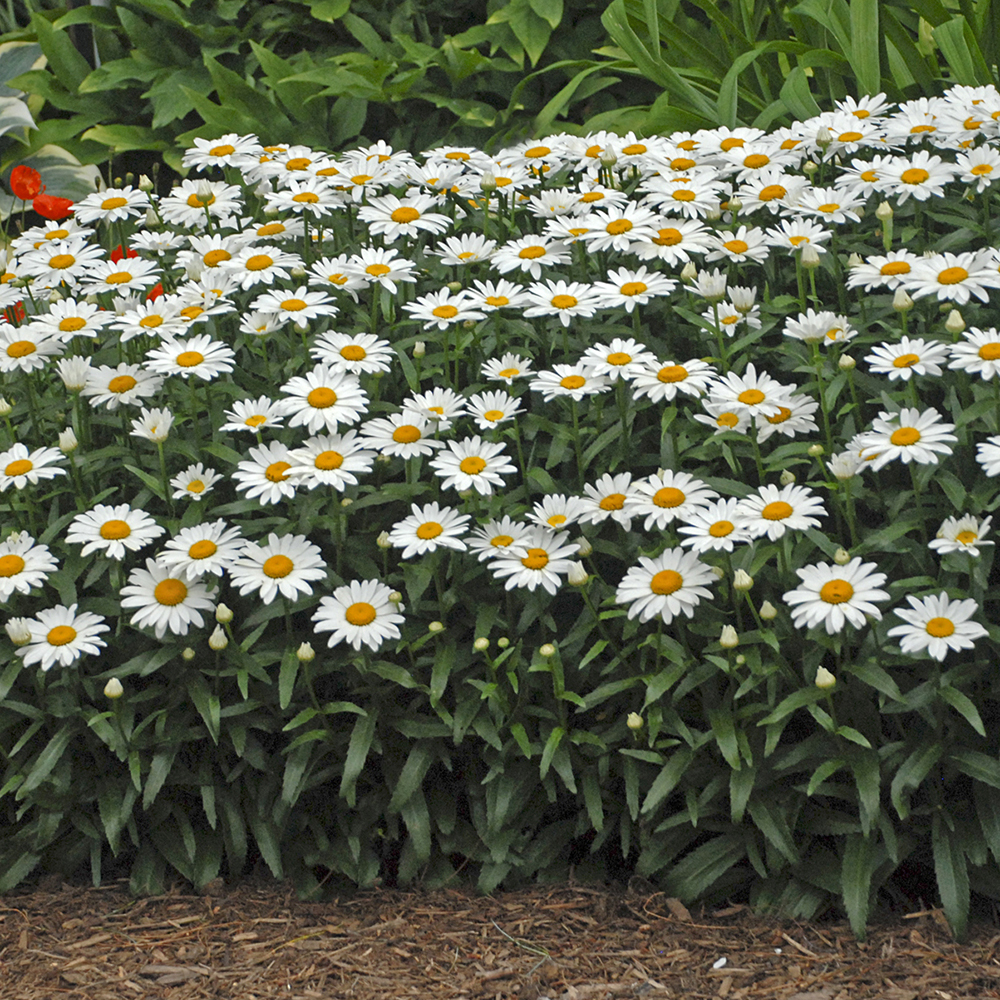
Leucanthemum superbum 'Snowcap' Stonehouse Nursery
All 49 results here Alphabetical list of all 4,000+ perennials here Leucanthemum × superbum 'Madonna' Shasta Daisy USDA Zone: 4-9 Plant number: 1.850.330 (Formerly Chrysanthemum maximum) No sunny border would seem complete without the familiar presence of Shasta Daisies.
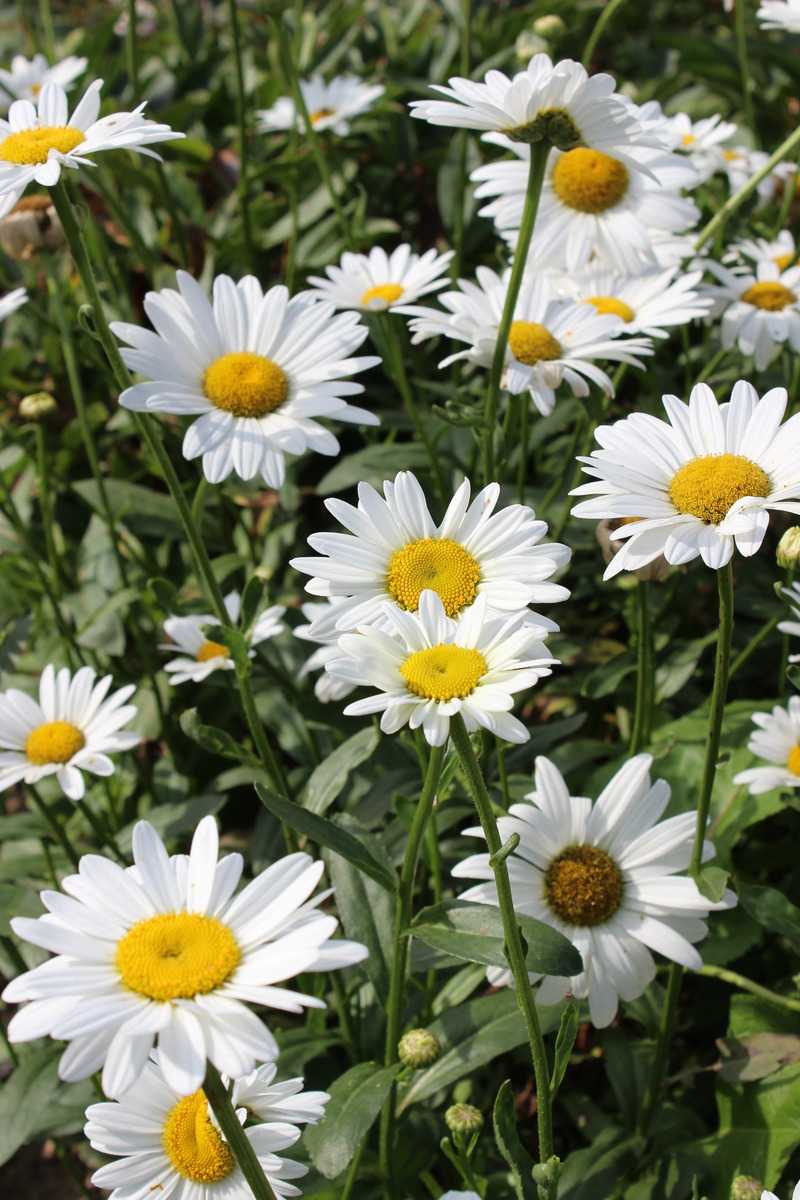
Leucanthemum x superbum 'Gruppenstolz' Lubera.de
Leucanthemum x superbum 'Old Court' Plant shasta daisy in fertile, well-drained soil in borders. Full sun gives the best flowers though partial shade still gives reasonably good results. Grow compact varieties in pots or towards the front of a border. How to plant shasta daisy

Leucanthemum x superbum 'Esther Read' BBC Gardeners World Magazine
Leucanthemum x superbum Common Name (s): Shasta Daisy Phonetic Spelling lew-KAN-theh-mum BY soo-PER-bum Description Shasta daisies are old-fashioned favorites for perennial borders and cut flowers, with single and double-flowered cultivars available. Plant in average to dry well-drained garden soil in full sun to partial shade.

Leucanthemum x superbum 'Real Neat' Country Farm Perennials
Highly popular, Leucanthemum x superbum 'Snowcap' (Shasta Daisy) is a herbaceous perennial valued for its abundant floral display and compact size. It produces a sea of large, pure white daisy flowers with golden yellow centers, 2-3 in. across (5-7 cm), atop a lush mound of medium to dark green foliage.
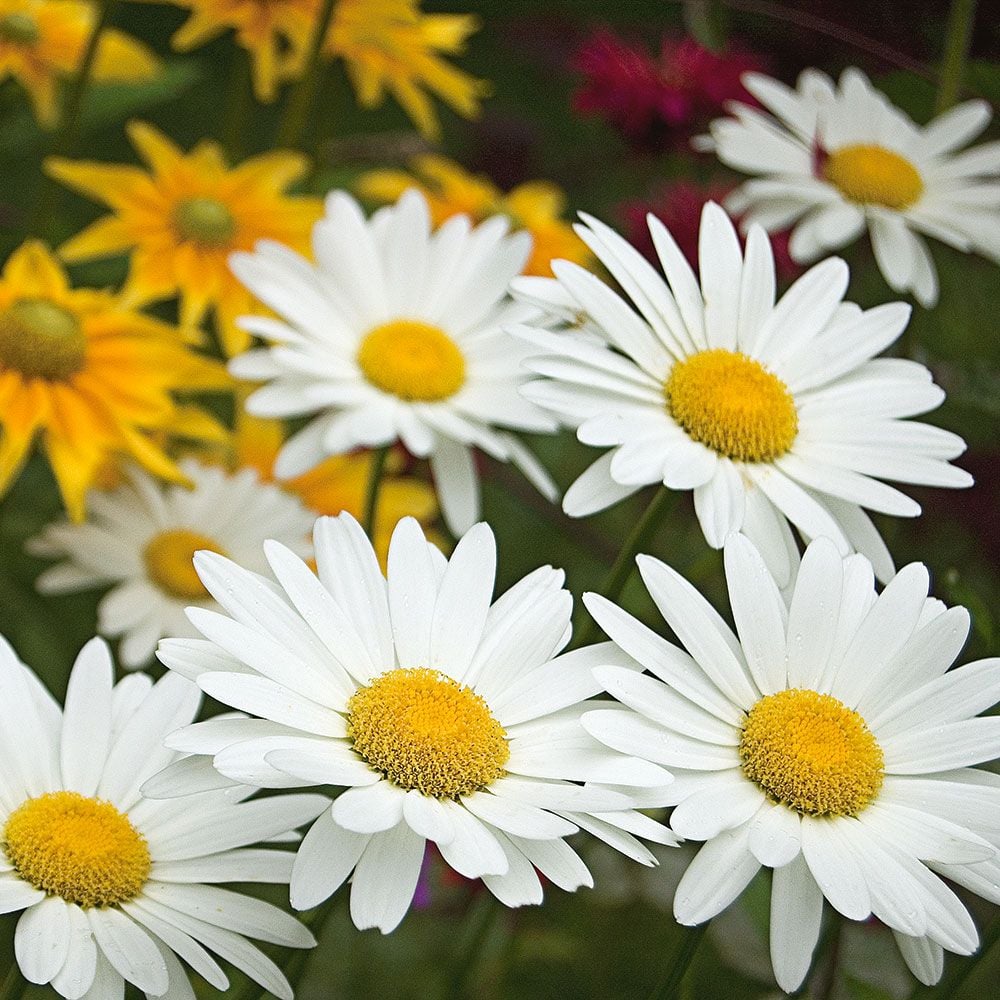
Leucanthemum x superbum Becky White Flower Farm
Height: 1m Spread: 60cm Hardy Attractive to wildlife Flower colour: Foliage colour: Position Soil Leucanthemum x superbum 'Becky' is a tall-growing shasta daisy, bearing single daisies with white petals and a yellow centre.

Leucanthemum x superbum 'Goldrausch' Ballyrobert Gardens
Leucanthemum × superbum Shasta daisy L. x superbum is a robust, clump-forming perennial with thick, narrow, dark green leaves. From early summer to early autumn bears solitary, single or double, white flower heads up to 10cm across with yellow centres Other common names max daisy Synonyms Leucanthemum maximum misapplied

Leucanthemum x superbum 'Silberprinzesschen' Ballyrobert Gardens
Leucanthemum x superbum is known for its prominent Summer white floral display above lush dark green foliage, with an overall upright to rounded habit, often used as a focal point or in naturalized mass plantings.
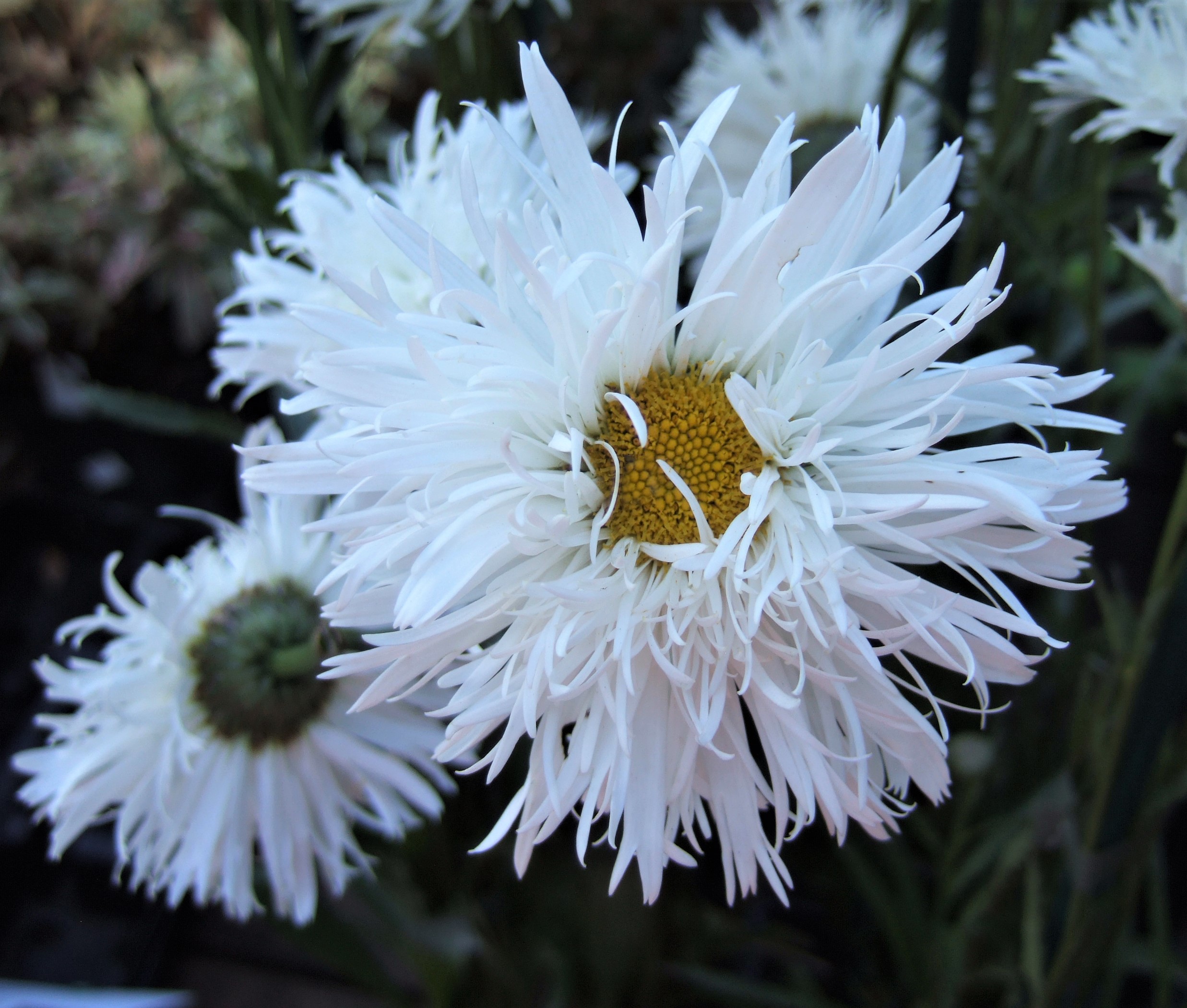
Leucanthemum x superbum 'Aglaia' Proctors Nursery
Leucanthemum × superbum, commonly called Shasta daisy, is a hybrid developed by Luther Burbank (1849-1926) in the 1890s near snow covered Mt. Shasta in northern California.

Leucanthemum x superbum (Shasta Daisy) North Carolina Extension Gardener Plant Toolbox
Named after the snowy peaks of Mount Shasta in California, the Shasta daisy ( Leucanthemum x superbum ) is a hardy hybrid developed in the 1800s by crossing the oxeye daisy with several wild daisy varieties. Today, there are 69 unique cultivars of the Shasta Daisy, according to the Royal Horticulture Society.

Leucanthemum x superbum 'Goldrausch' Ballyrobert Gardens
Introduced to the garden world in 1901, the Shasta daisy ( Leucanthemum ×superbum) is a hybrid combining the best qualities of the oxeye daisy ( Leucanthemum vulgare ), English field daisy ( Leucanthemum maximum) and Portuguese field daisy ( Leucanthemum lacustre ).

Leucanthemum x superbum (Shasta Daisy) North Carolina Extension Gardener Plant Toolbox
Grows up to 24-36 in. tall (60-90 cm) and 18 in. wide (45 cm). Thrives in full sun in moderately fertile, moist but well-drained soil. Light shade is tolerated, specifically in hot summer areas. Good soil drainage is critical. Drought and dry soil tolerant. Excellent choice for perennial borders, cottage gardens, prairies, and meadows.
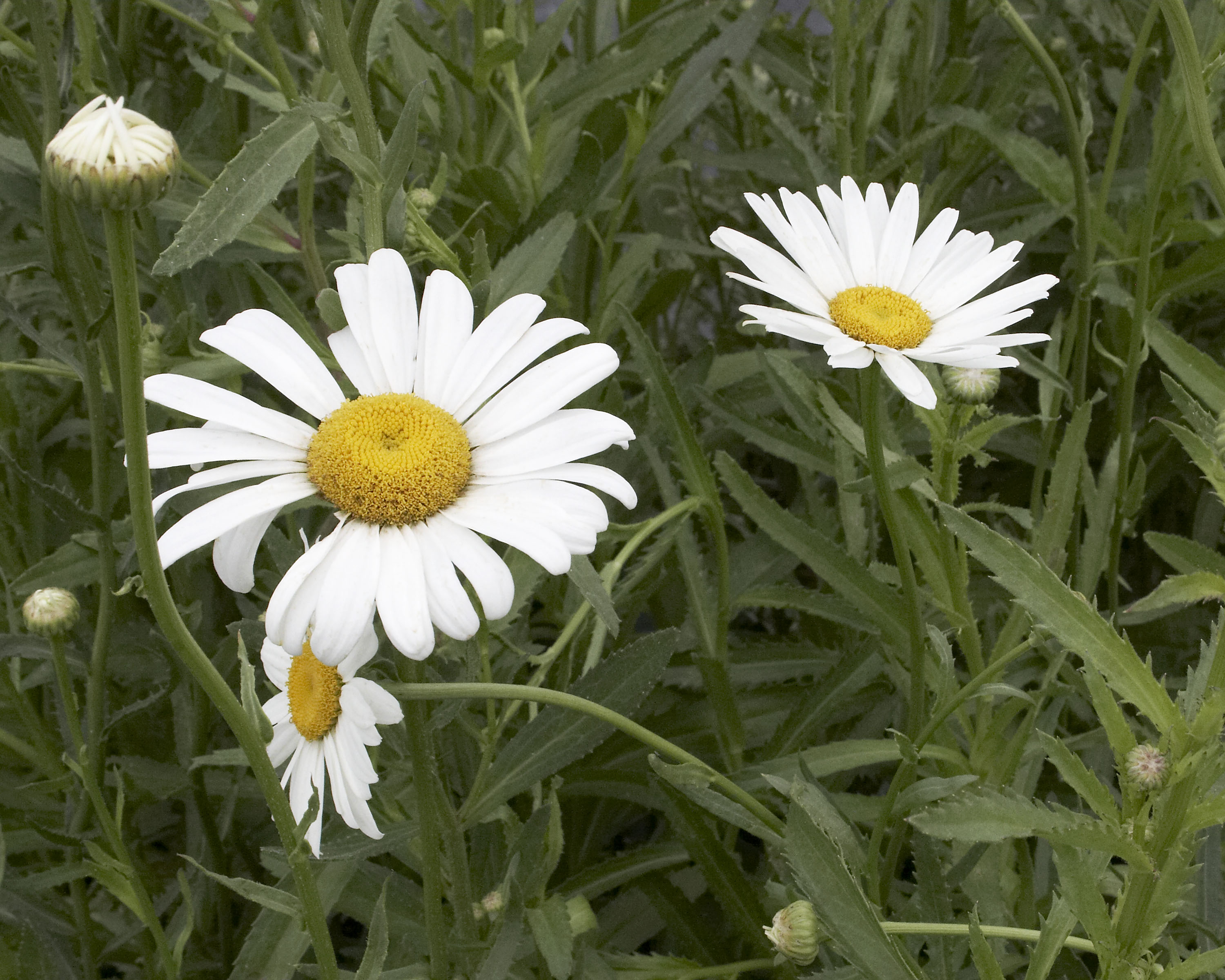
Leucanthemum_x_superbum_Alaska.jpg
Leucanthemum × superbum, the Shasta daisy, is a commonly grown [1] flowering herbaceous perennial plant with the classic daisy appearance of white petals (ray florets) around a yellow disc, similar to the oxeye daisy Leucanthemum vulgare Lam, but larger.

Leucanthemum x superbum 'Silberprinzesschen' Ballyrobert Gardens
Leucanthemum x superbum, commonly known as Shasta Daisy, is a flowering perennial plant is a hybrid produced in 1890 by the American horticulturist Luther Burbank from several daisies. It is named after California's snowy Mount Shasta because of its large, white, snow-like flowers.